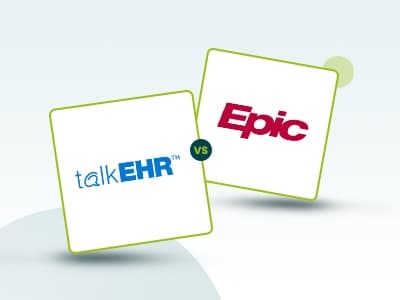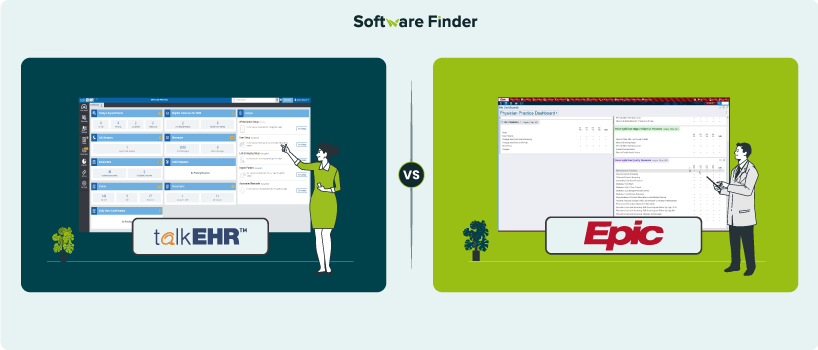
Starting Monthly Price: $249/month/provider plus $995 set up fee Best for: Primary Care, ENT, Psychiatry Mobile App: iOS, Android Rating: 3.9 *Pricing is subject to change. | Starting Monthly Price: Customed Pricing Plans Best for: Acute Care, Ambulatory, Oncology Mobile App: iOS, Android Rating: 4.4 |
Switching to a new EHR system is a big step for any healthcare practice. The right choice can streamline patient care, enhance daily operations, and ultimately reduce costs in the long run. That’s why understanding your options before making the switch is so important for providers.
talkEHR and Epic are among the many EHR solutions available today for clinics and hospitals of various sizes. Both promise user-friendly features and reliable support, but they cater to different needs and budgets. Knowing how they differ helps ensure a smooth transition for your staff and patients.
This blog will break down the main features, pros, and drawbacks of talkEHR and Epic. By the end of this guide, you’ll have a clearer picture of which system aligns better with your practice’s goals and workflow.
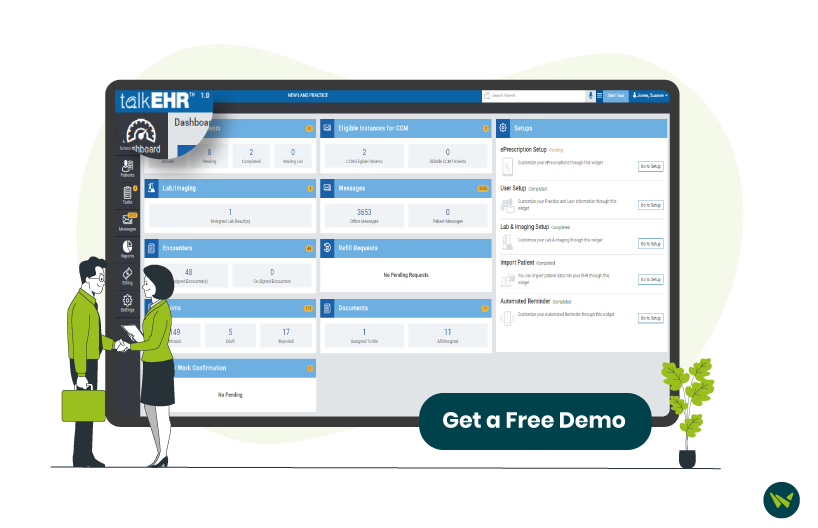
talkEHR is a cloud-based EHR solution that caters to over 70 specialties, offering customizable scheduling, reporting, and telehealth tools, supporting medical practitioners to enhance patient care. The software stands out for its built-in voice recognition, letting providers chart hands-free.
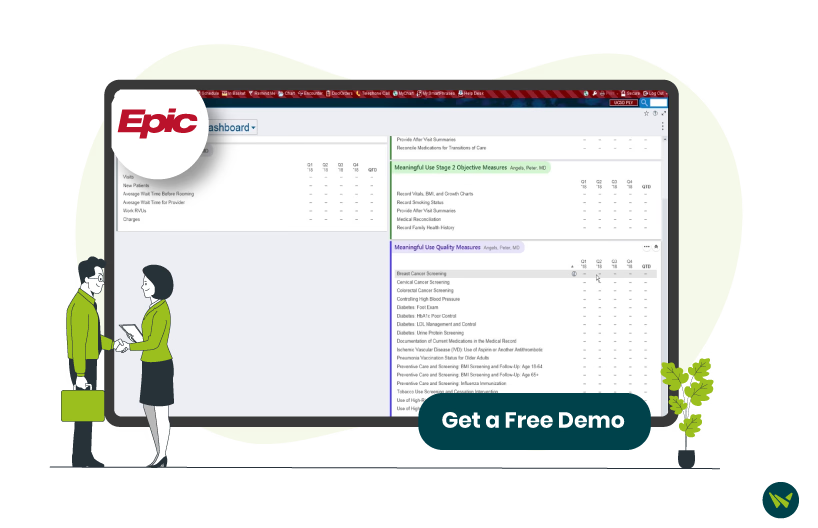
Meanwhile, Epic EMR is a cloud-based healthcare software that holds a massive 42.3% market share in the US acute care EHR market as of 2024. Large hospitals and healthcare systems widely adopt the platform. KLAS Research has consistently recognized it for several categories, including clinical communications, workflow management, practice management, patient portal, and more.
Feature | talkEHR | Epic |
Scheduling | ✓ | ✓ |
Patient Portal | ✓ | ✓ |
Telehealth | ✓ | ✓ |
Medical Billing | ✓ | ✓ |
Document Management | ✘ | ✓ |
Reporting | ✓ | ✓ |
Integration | ✓ | ✓ |
Compliance | ✓ | ✓ |
Mobile Access | ✓ | ✓ |
Support Options | ✓ | ✓ |
talkEHR | Epic |
Pros Outstanding dictation options Multiple patient data access Secure patient messaging Ease of access to pharmacy Centralized patient information Cons Billing module generates inconsistent claim processing outcome Claims scrubber applies incorrect modifier codes | Pros Customizable reports Easy to navigate patient charts Integrates with multiple practices Reduces hospital resources overuse Ease of scheduling patients Cons Hard to access patient information Limited SOAP notes smart phrases
|
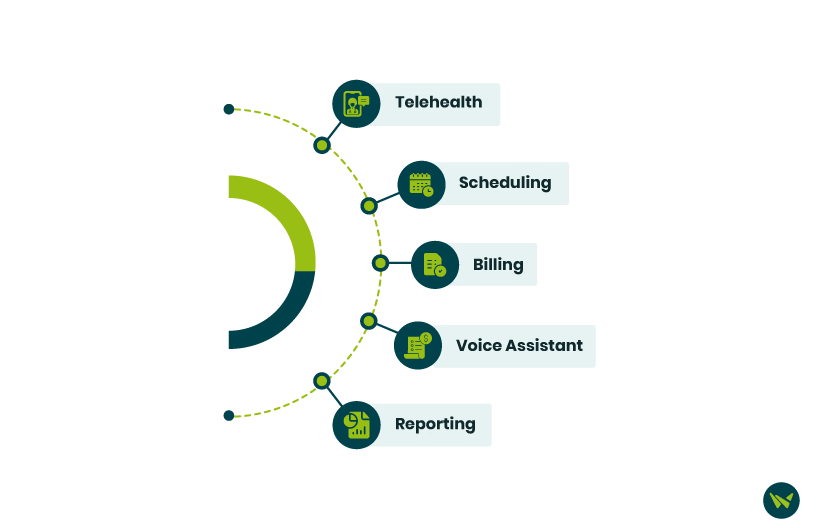

talkEHR has a setup fee of $995 and offers the following three pricing plans:
- talkPro – Starting at $249/provider/month
- talkCSP – Starting at $299/provider/month
- talkUltimate – Based on the billing collection with a $995 minimum
Disclaimer: Pricing is subject to change.
In contrast, Epic offers custom pricing plans to its users based on their practice size, needs, and preferences.
While talkEHR provides clear, tiered plans with upfront costs and predictable monthly fees, Epic follows a more flexible pricing approach. Smaller clinics may appreciate talkEHR’s transparent rates, while larger hospitals often negotiate custom Epic contracts. Ultimately, the right pricing plan depends on a practice’s size, budget, and required features.
talkEHR users often praise its simple setup and built-in voice recognition, which helps them chart quickly during patient visits. Many small practices value its affordability and find telehealth and billing tools helpful for daily operations. However, some reviews mention occasional billing automation errors.
In comparison, Epic receives high marks for its robust features and strong data-sharing capabilities among large networks. Users like its powerful customization options and reliable performance across multiple departments. On the downside, some users find it challenging to locate specific patient information within the system.
Overall, user feedback indicates that both talkEHR and Epic effectively cater to different practice environments. talkEHR is often favored by smaller clinics seeking budget-friendly tools with practical features, while Epic supports larger networks that need advanced customization and broad data access. Ultimately, the better choice depends on a practice’s size, technical needs, and comfort level with system complexity.
talkEHR and Epic each deliver valuable tools for managing patient care and daily operations. talkEHR appeals to small and mid-sized practices seeking straightforward features and cost-effective plans, while Epic remains a trusted choice for large hospitals requiring comprehensive modules and advanced integrations.
Before making a decision, it’s wise to evaluate your practice size, budget, and team's readiness for implementation. Matching the software to your daily workflow ensures you get the most out of your investment and avoid unexpected setbacks.
